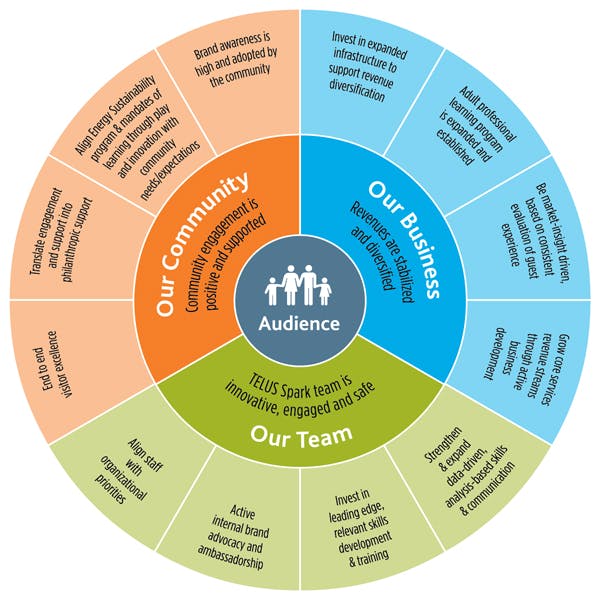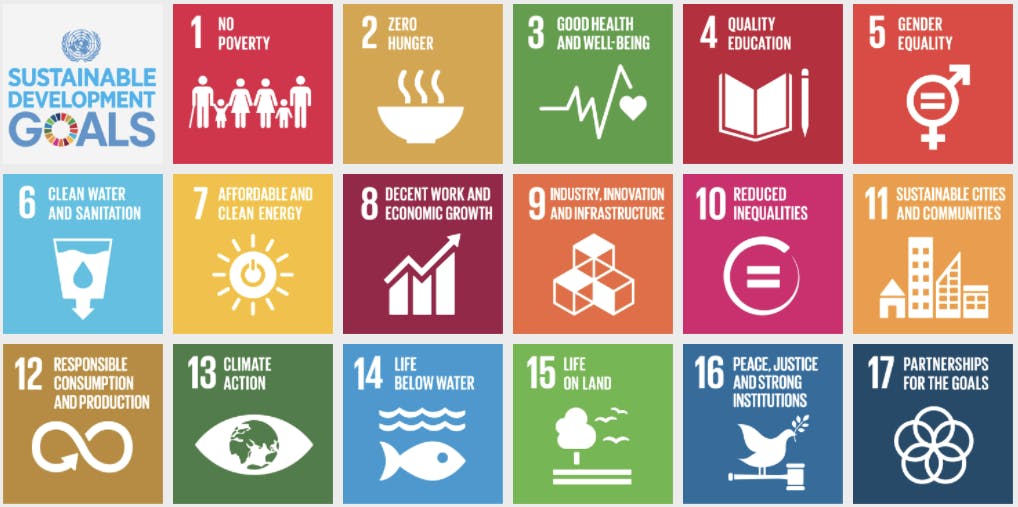Calgary Science Centre Society
2016 was an important year for TELUS Spark with efforts resulting in the achievement of the goals shown in the diagram below.
Notable highlights include:
- Record number of visitors, at 431,262, higher than our first year of full operations
- Maintained admission pricing at 2011 levels to help TELUS Spark remain affordable/accessible to Calgarians
- Exhibit investment in 10 new Being Human Gallery exhibits, including the Bed of Nails
- Hosted Body Worlds, an ~8,200 ft2 traveling exhibit highlighting the importance of vital systems in the human body
- SHIFT Lab, our teacher training program, reached more than 4,000 students
- Curriculum-linked school programs delivered to 82,000 students on-site
- Volunteers contributed almost 20,000 hours or 10 FTE
- Received Calgary’s Child Parents’ Choice Award for Best Accessible/Inclusive Experience for Kids with Special needs.

TELUS Spark receives Lighthouse Award
TELUS Spark has been a valued Calgary Board of Education (CBE) partner for more than 20 years. The partnership began when the science centre became one of the first Campus Calgary/Open Minds program sites. Since 1997, more than 12,000 CBE students and teachers have participated in the program at TELUS Spark, which allows teachers and their students to experience a wide range of exhibits, live demonstrations, programs and workshops.
In 2015-16 our Chevron Open Minds science school program welcomed 28 classes from 15 different schools involving 715 students.
Whether students are in Grade 1 as junior architects, in Grade 12 interacting with an orthopedic surgeon during a video streamed surgery or something in-between, they are involved in responsive and engaging learning at TELUS Spark.
2016 Play Highlights
1. Contribution to Value of Play conference in South Carolina
2. Adventurous activities from Capture the Flag to Improv for Teachers brought the spirit of play to the Brainasium, Shift Lab, Adults Only Night and other offerings
3. Raising the bar for facilitators’ comfort and skill inspiring play
Looking Ahead
1. TELUS Spark will be a key player at the 2017 International Play Association Conference in Calgary where we will celebrate the International Day of Play in September
2. On June 17th, Neighbour Day will kick off our summer with activities designed to show that free play matters
3. Premiering a new daily play experience in the Atrium
4. In 2017, the introduction of the speaker series, Spark Talks, will focus on the ability of “play” to enhance innovation, learning and wellness while broadening our external audience. Talks will embolden new perceptions of TELUS Spark as a leader in provision of thought provoking, conversation stimulating content and showcase the unique qualities of our programming, exhibits and space
Play
By: Meghan Durieux, Public Programmer, TELUS Spark
We play when we explore movement, when we engage with the world around us, when we interact with others and when we use our imaginations. The range of behaviours associated with play is extensive. As a result, it can be tricky to define exactly what “counts” as play. But we can agree that we recognize play when we’re doing it, and that it’s definitely fun.
At TELUS Spark, we know that the value of play goes beyond fun; it’s incredibly important. Play is central to learning, especially for children. Through play, we are able to develop our intertwined cognitive, physical and emotional capacities, and when these capacities are strong they help us throughout our lives.
It’s no surprise that play occupies a great deal of a child’s time, particularly early in life. At TELUS Spark, there is evidence of play throughout the science centre, however, there is one particular type of play that is especially visible, critical to development and sometimes a topic of hot debate. We’re talking about risky play.
Risky play is thrilling, so children are drawn to it. But it may come with a chance of injury, which is where the debate begins. Should we encourage risky play, or protect children from it? Experts, research and experience indicate that risky play is critical for child development because it creates opportunities for children to practice handling risks. When a situation is as safe as necessary, but not as safe as possible, children have the opportunity to navigate risk and develop the skills needed to handle adult-sized risks later in life.
We’ve gained international respect for how we push the boundaries and embrace risky play. At the Value of Play conference in South Carolina, TELUS Spark represented the Canadian perspective regarding the importance of risky play environments alongside delegates from the United Kingdom, United States and Germany. Our participation helped to inform the conversation about modelling risky play to create healthy and innovative communities. We will continue to be a voice in the discourse around play in 2017 when Calgary hosts the International Play Association conference where we will share our unique expertise and work with local partners to contribute to the legacy of play in Calgary.
2016 Innovation Highlights
1. Launched a series of temporary exhibits and test programs on energy systems in transition
2. Virtual reality testing as a connection through our Dome Theatre program
3. Installed the first electric vehicle charging station and began feasibility studies for solar installation
Looking Ahead
1. Further testing of conversations and activities for improved family dialogue and engagement in science, technology, engineering, art and math
2. Enhancement of the family experience at TELUS Spark through food at Social Eatery.
3. Refinement of the role TELUS Spark can play in the dialogue and interpretation of energy systems through activation of community partnerships and programs
Innovation in Conversations
By: Jennifer Martin, CEO, TELUS Spark
We have myriad studies on innovation in Canada, policies and reports from every corner of the nation, but how do we talk about it from day to day? For that matter, how do we talk about science?
A colleague of mine summed it up recently when she said, “The struggle in society today is the desire to find simple answers to complex issues”. Innovation in Canada is as complex an issue as climate change, human neurologic development factors and the transition of our energy systems across the planet.
The issues are complex, but there are some simplified actions we can take to tackle this challenge. There are tools for this struggle, and they involve having better conversations.
First, be a good conversation starter. At TELUS Spark, one of the simple tools we have found useful to help start open dialogue about our changing energy system is the United Nations Sustainable Development Goals. These clear graphics are easy to comprehend and powerful in the inclusiveness of the challenges we face on a global level. Want to start a great conversation? Ask someone which top five goals resonate with them and why.

Next, be a good listener. Most Albertans find themselves invested in one aspect or another of Alberta’s energy system, but here is our call to action. Just ask questions. Don’t correct, don’t interject and, most importantly, don’t walk away in frustration. This will be tough for many of us who are programmed to provide answers, but remember, there are no ‘simple answers’. We need to invite more dialogue because the most important affect we can have is to increase the personal curiosity of our kids, of our community. A more curious public is a more engaged public.
The third simple action we can take is to create more space and time for the conversation. A study at King’s College in the UK found that the reason some young people (12-17 years old) participate in science-related studies and careers, and others don’t, depends on their daily environment. And, there are several dimensions that contribute to a positive daily environment. If it includes parents who value science and technology and talk about it with them, if it includes stories in the media about science issues personally relevant to them, and yes, if it includes places like science centres and museums where informal learning links to their formal education, they are statistically more likely to continue to engage with science and technology through high school and into their adult lives.
Overall, if these young people are more confident in their knowledge, they are more willing to engage in sometimes tough (read: complex) conversations – literacy in science or energy in this case, is one of those dimensions, but it alone cannot improve engagement or improve curiosity.
The dining room table is a great space to start these conversations; or coffee with friends. Start a new conversation by asking questions, and genuinely listen to their response. Remember that the most important outcome is increased curiosity, not increased literacy or landing more facts with a satisfying thud. Rather than trying to boil down our work to simple answers, we can focus on some simple actions that can innovate the conversation.
2016 Learning Highlights
1. TELUS Spark served 12,686 students in April and 11,402 in May, our busiest months on record so far
2. Premiered summer wetlands ecology programs for schools through utilization of our pond space
3. Served as the satellite location for 16 City of Calgary Teachers Convention sessions in February
Looking Ahead
1. Energy systems-focused Prototype Project will engage Junior High and High School students in exploring and representing energy systems
2. Serving on the core team informing the new Alberta science curriculum
3. Bringing our expertise in changing how teachers work to new audiences: corporate Calgary (using what we’ve developed for SHIFT Lab in new on-demand team builders)
Learning
By: Katherine Ziff, Vice President, Content, TELUS Spark
If you’ve visited TELUS Spark you’ve seen the great learning that happens when families explore our exhibits, take in a Science Demo or Science Bite, or immerse themselves in a Dome show. You may not have seen the great educational experiences that happen in the Learning Centre, a hidden gem tucked away above the Creative Kids Museum.
The Learning Centre is where we get to dig into a topic for a longer time period – from 60 to 90 minute school programs, to half and full-day teacher professional development, to week-long Chevron Open Minds classes and Spark Spring and Summer Camps, and our ultimate in teacher PD: the week-long intensive and year-long commitment that is SHIFT Lab.
Each of our learning programs fosters experimentation, observation and collaborative learning for students, educators, and families. In 2016, over 82,000 students participated in our school programs and were encouraged to think differently by challenging themselves to learn in new ways.
School programs like dance-based Math in Motion, which takes place on the Inspiration Stage, and the behind-the-scenes building tour Spark Treks have always taken place beyond the Learning Centre. Now we take school programs outside the building. In response to a growing conversation about the environment and the importance of understanding water systems, TELUS Spark developed new programs that take place at our pond (at the north end of the site). Students learn about the plants and animals that make up our local ecosystem and how our actions affect them.
The Learning Centre doesn’t shut down in summer, in fact, in some ways, it gets even busier with Spark Summer Camps. Summer 2016 was our best-selling camp year ever with 94% of camp spots filled. Rather than play it safe with our usual seven camp themes we tried 10 topics, including riskier ones like fashion where brave campers gave haircuts to even braver Spark staff members.
“Whenever someone asks [my son] what he did at his science camp: ‘Oh—I got to start fire, play with arrows, use a saw—you know—all the things I’m NOT ALLOWED to do at home!”
2016 Community Highlights
1. Trip Advisor rating jumped from #108 to #20 out of 289 attractions in Calgary
2. Developed Responsible Energy Transitions strategy
3. Participated in the first annual International Science Centre and Science Museum Day
4. Increased access visits by 50%, representing 11% of general admission to TELUS Spark
Looking Ahead
1. Deliver a series of events, programs and exhibits to mark the 50th anniversary of TELUS Spark and 150th anniversary of Canada
2. Continued community engagement and development of a new Strategic Plan
3. Build Responsible Energy Transition programming
Community
By: Alison Pidskalny, VP, External Affairs, TELUS Spark
The pillars of TELUS Spark’s Community Strategy are Visitor Engagement, Strategic Partnerships, and Inclusion. In 2016, TELUS Spark partnered with 47 social service organizations representing a range of needs (homelessness, hunger, mental health, disabilities and addiction to name a few). Via this network, we hosted 14,500 people who would have otherwise been unable to visit, an increase of 50% over 2015. In addition, we welcomed thousands of Syrian refugees and displaced residents of Fort McMurray during the 2016 wildfires. TELUS Spark also introduced a new access program in partnership with school districts, targeting marginalized schools. Via this program we welcomed 1,500 students, who received free bussing, a subsidized curriculum-linked school program and a dinner and evening for the students and their families at the science centre.
Looking more broadly at our city and the greater diversification of our economy, the importance of strong family science capital as a lead-in to science, technology, engineering and math-based career choices will be critical. We work closely with our community partners and with Provincial and Federal Government to identify opportunities to convene conversations about the diversification of the economy. As a science centre, we have the unique ability to collaborate with a wide spectrum of stakeholders, engage in conversations and convert those discussions into meaningful actions.
For example in 2016, TELUS Spark participated in and hosted, the Energy Futures Lab, with members of the City, Calgary Economic Development, and representatives of several major energy companies in Calgary, to join other Albertans in the discussion and pilot studies to develop the energy system that the future demands of us.
As a LEED Gold building, TELUS Spark has made it a priority to encourage our members, guests, partners and sponsors to seek out and adopt innovative and clean energy technologies. Specifically in 2016, the Board of Directors allocated reserve funds to developing a Responsible Energy Transitions strategy, including programs and potential permanent installations. In phase 1, we engaged our adult audiences in conversations about how we advance the goal of reducing greenhouse gases, a focus of United Nations Sustainable Development Goal #13 – Climate Action. Working with the Ministry of Environment and Parks, the Climate Change Office and the Energy Efficiency Advisory Board, along with other organizations such as Energy Futures Lab and Student Energy, TELUS Spark intends to build on the work we started in 2016 and pursue funding opportunities for energy efficiency and air quality-related initiatives throughout the community.
TELUS Spark is very fortunate to have a strong network among our community partners and corporate sponsors. In 2016, TELUS Spark identified the need to diversify partnerships and work more closely with various levels of government in the areas of innovation and energy sustainability, education and learning and health and wellness. Our network reaches well beyond Calgary and we continue to identify and develop a range of content, community, marketing and funding partnerships.

